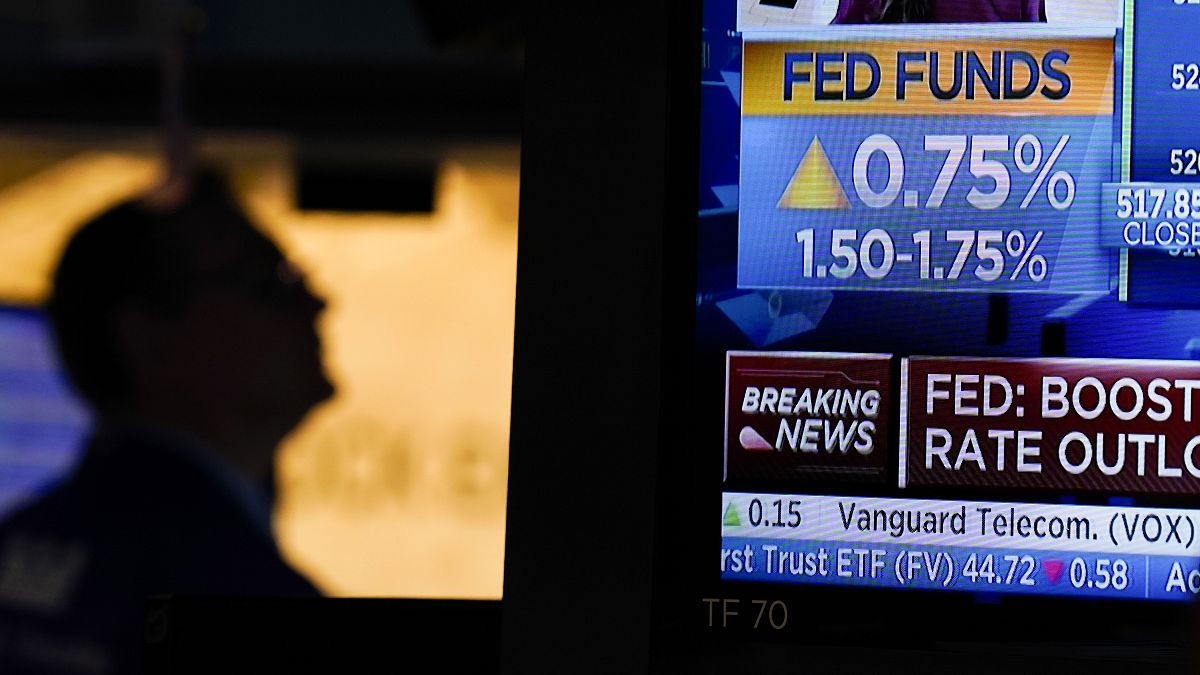The Fed’s decision to raise its key interest rate by 0.75% is seen as an acknowledgement that it's struggling to curb inflation.
The Federal Reserve on Wednesday intensified its drive to tame high inflation by raising its key interest rate by three-quarters of a point — its largest hike in nearly three decades — and signaling more large rate increases to come that would raise the risk of another recession.
The move the Fed announced after its latest policy meeting will raise its benchmark short-term rate, which affects many consumer and business loans, to a range of 1.5% to 1.75%.
With the additional rate hikes they foresee, the policymakers expect their key rate to reach a range of 3.25% to 3.5% by year's end — the highest level since 2008 — meaning that most forms of borrowing will become sharply more expensive.
The central bank is ramping up its drive to tighten credit and slow growth with inflation having reached a four-decade high of 8.6%, spreading to more areas of the economy and showing no sign of slowing.
The Fed’s three-quarter-point rate increase exceeds the half-point hike that Chair Jerome Powell had previously suggested was likely to be announced this week. It's seen as an acknowledgment that it's is struggling to curbinflation, which has been worsened by Russia’s war against Ukraine and its effects on energy prices.
Powell suggested on Wednesday that another three-quarter-point hike is possible at the Fed's next meeting in late July, if inflation pressures remain high.
Inflation has shot to the top of voter concerns in the months before Congress’ midterm elections, souring the public’s view of the economy, weakening President Joe Biden’s approval ratings and raising the likelihood of Democratic losses in November.
Investments around the world, from bonds to bitcoin, have tumbled on fears surrounding inflation and the prospect that the Fed’s aggressive drive to control it will cause a recession.
Other central banks are also acting swiftly to try to quell inflation, even with their nations at greater risk of recession than the US. The European Central Bank is expected to raise rates by a quarter-point in July, its first increase in 11 years.
On Wednesday, the ECB vowed to create a market backstop that could buffer member countries against financial turmoil of the kind that erupted during a debt crisis more than a decade ago.
The Bank of England has raised rates four times since December to a 13-year high, despite predictions that economic growth will be unchanged in the second quarter. The BOE will hold an interest rate meeting on Thursday.
Last week, the World Bank warned of the threat of “stagflation” — slow growth accompanied by high inflation — around the world.
